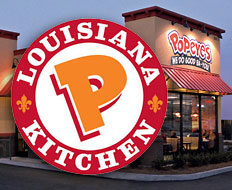"A rose by any other name would smell as sweet.”
With all due respect, I must disagree with Shakespeare on his famous quote from the play Romeo and Juliet. Perhaps names don’t matter when you’re in love, but they matter a lot in the restaurant business. In fact, I would go so far as to say that the right name can make or break a company.
I was reminded of this harsh, but very true, reality as I noticed a new restaurant in my neighborhood. Named Off the Sajj, the establishment serves Lebanese food like falafel, tabbouli, and baba ganoush. I know this because I made a special point to stop by and check it out. But if I had seen the restaurant sign while wearing my “normal consumer” hat, I wouldn’t have given the place a second thought.
Why? Because I had no idea what a sajj was (it’s a type of oven, I discovered). So the restaurant name wouldn’t have even registered with me. And even if the name had managed to pique my curiosity, I wouldn’t have gone out of my way to try something I wasn’t familiar with, much less didn’t know how to pronounce.
Off the Sajj disregards the top criteria of a good name: easy to pronounce, understand, and spell. Restaurant names should engender trust, not create uncertainty or confusion. This is true now more than ever. Today’s consumers remain somewhat risk averse, even if the economy is improving. They’re not going to spend their hard-earned money at places they don’t understand.
Owners need to carefully select the right name for their businesses. Here are some other criteria that make for a strong brand name.
It should reinforce the brand positioning. A name doesn’t have to spell out the positioning—Authentic Lebanese Food would be a boring name. But it should evoke or suggest some understanding of what the concept is and communicate the brand personality. The name of another new establishment here in town, El Take It Easy, clearly tells me it’s a Mexican eatery with a laid-back environment.
It should be appropriate for the target audience. Restaurateurs should be clear about the type of person the restaurant is for and select a name accordingly. Provocative names may be a real draw for young singles, but a turn-off for families, for example. Fun names may attract a social crowd, but discourage a more discriminating diner.
It should differentiate you from competitors. Our town is filled with myriad taco shops all with the ending “-berto” in their names: Roberto’s, Alberto’s, Gilberto’s, Aliberto’s, and so on. This makes it hard to distinguish among all the choices. A copycat name may make entering a market easier, but creating brand preference will be more difficult in the long run.
matter when you’re in love, but they matter a lot in the restaurant business.”
It should be able to adapt over time. A name should grow with the business as it expands into new formats, target audiences, and scopes. Popeyes invested a lot of time and money over the last few years to replace its Chicken and Biscuits descriptor with a less limiting, more culinary moniker Louisiana Kitchen. Few chains have the resources to do the same. And such an expense can be avoided with a thoughtful name selection upfront.
It should be a name employees and stakeholders take pride in being associated with. If your employees won’t proudly wear a uniform emblazoned with the restaurant name, your customers probably won’t like the name, either.
There are also some practical considerations to keep in mind when selecting a name. For instance, it should be the right length for the most common uses. Pick a name that works well on the packaging, signage, and promotional materials you plan to use, not to mention one that’s available for trademark registration and URL. Also, the name should be free of inappropriate associations or connotations. Case in point: You might want to promote a distinctive feature of your establishment, but it’s best to think about how a name like The Golden Stool might be construed.
The naming experts at Landor, an international branding firm, explain the importance of getting a name right. They say that a name “acts as the primary handle for a brand; it’s a recall and recognition device, it communicates desired attributes or specific benefits, and, through time and consistent use, it becomes a valuable asset and intellectual property.”
So deciding on a restaurant name shouldn’t be made hastily, or as a matter of individual preference. I recommend using constructive and creative brainstorming techniques to produce a robust list of possible names that you can then evaluate against the above criteria with the wise counsel of your internal stakeholders and target audience members.
Selecting the right name is one of the most important decisions you can make. Perhaps a different Shakespeare adage should be followed when choosing a name: “A fool thinks himself to be wise, but a wise man knows himself to be a fool.”










